Filter by
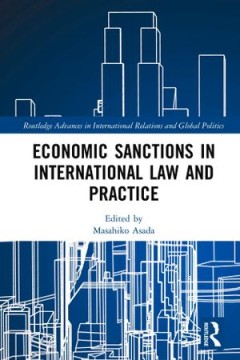
Economic Sanctions in International Law and Practice
Providing perspectives from a range of experts, including international lawyers, political scientists, and practitioners, this book assesses current theory and practice of economic sanctions, discussing current legal and political challenges faced by the international community.It examines both the implementation of sanctions by major powers – the United States, the European Union, and Japan …
- Edition
- -
- ISBN/ISSN
- 9780429052989
- Collation
- 270 halaman
- Series Title
- -
- Call Number
- 340 ECO
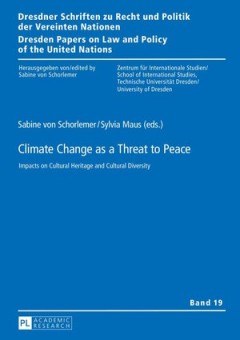
Climate Change as a Threat to Peace : Impacts on Cultural Heritage and Cultur…
This volume takes a fresh look at climate change as a threat to peace and its impacts on cultural heritage and cultural diversity. It proceeds under the assumption that the impacts of climate change on cultural heritage and cultural diversity may challenge sustainable global peace. As innovative feature, the interdisciplinary nexus between cultural heritage and peace is explicitly taken account…
- Edition
- -
- ISBN/ISSN
- 9783631662236
- Collation
- 209 halaman
- Series Title
- -
- Call Number
- 320 CLI
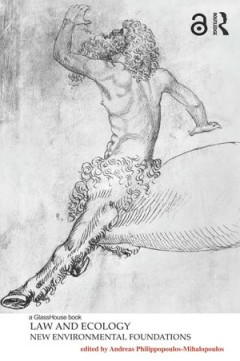
Law and Ecology : New Environmental Foundations
Law and Ecology: New Environmental Foundations contains a series of theoretical and applied perspectives on the connection between law and ecology, which together offer a radical and socially responsive foundation for environmental law. While its legal corpus grows daily, environmental law has not enjoyed the kind of jurisprudential underpinning generally found in other branches of law. This bo…
- Edition
- -
- ISBN/ISSN
- 9780415587136
- Collation
- 256 halaman
- Series Title
- -
- Call Number
- 340 halaman
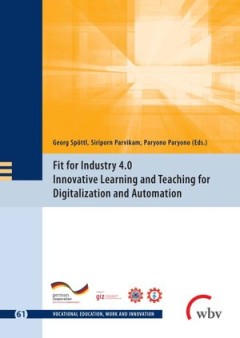
Fit for Industry 4.0 : Innovative Learning and Tea ching for Digitalization a…
his volume presents a further training concept on Industry 4.0 for vocational teachers, which was developed for transnational use by the "Gesellschaft für Internationale Zusammenarbeit" (GIZ) together with SEAMEO VOCTECH (Regional Centre for Vocational and Technical Education and Training) and ASEAN (Association of Southeast Asian Nations) for transnational use. In connection with the thematic…
- Edition
- -
- ISBN/ISSN
- 9780000000105
- Collation
- -
- Series Title
- -
- Call Number
- 370 FIT
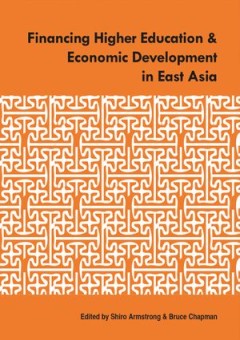
Financing Higher Education and Economic Development in East Asia
This volume addresses important issues to do with access to higher education and different models of its financing in the East Asia region. It is enriched by diverse perspectives from vastly different starting points and by the historical and institutional settings in the region. The issues are set out in the context of the value of higher education in economic development and how it contribute…
- Edition
- -
- ISBN/ISSN
- 9781921666636
- Collation
- -
- Series Title
- -
- Call Number
- 370 FIN
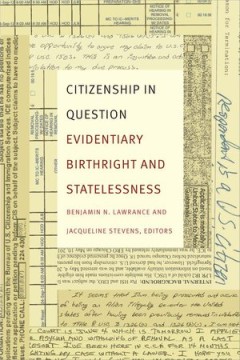
Citizenship in Question : Evidentiary Birthright and Statelessness
Citizenship is often assumed to be a clear-cut issue— either one has it or one does not. However, as the contributors to Citizenship in Question demonstrate, citizenship is not self-evident; it emerges from often obscure written records and is interpreted through ambiguous and dynamic laws. In case studies that analyze the legal barriers to citizenship rights in over twenty countries, the con…
- Edition
- -
- ISBN/ISSN
- 978-0822362913
- Collation
- 312 halaman
- Series Title
- -
- Call Number
- 320 CIT
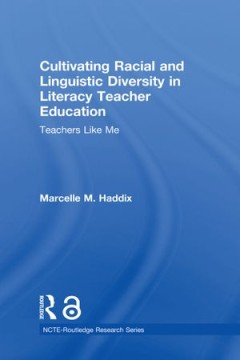
Cultivating Racial and Linguistic Diversity in Literacy Teacher Education : T…
Cultivating Racial and Linguistic Diversity in Literacy Teacher Education examines how English and literacy teacher education—a space dominated by White, English-monolingual, middle class perspectives—shapes the experiences of preservice teachers of color and their construction of a teacher identity.Significant and timely, this book focuses attention on the unique needs and perspectives of …
- Edition
- -
- ISBN/ISSN
- 9781317913375
- Collation
- 154 halaman
- Series Title
- -
- Call Number
- 370 HAD c
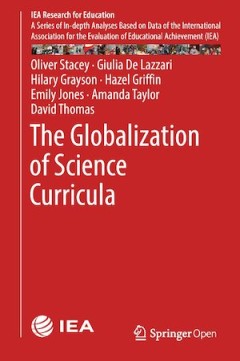
The Globalization of Science Curricula
ntroduction Globalization is a powerful force with far reaching impacts on education and education policy. The growth of large scale international surveys of student achievement and the increasing role played by intergovernmental agencies in education means that the influence that globalization exerts on education is likely to increase even further in the future. This open access book provides …
- Edition
- -
- ISBN/ISSN
- 9783319715322
- Collation
- X, 100 halaman
- Series Title
- IEA Research for Education
- Call Number
- 370 STA g
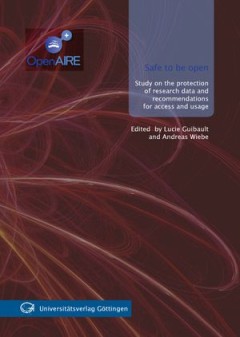
Safe to be open : Study on the protection of research data and recommendation…
This study addresses the most important legal issues when implementing an open access e-infrastructure for research data. It examines the legal requirements for different kinds of usage of research data in an open access infrastructure, such as OpenAIREplus, which links them to publications. The existing legal framework regarding potentially relevant intellectual property (IP) rights is analyse…
- Edition
- -
- ISBN/ISSN
- 9783863951474
- Collation
- 168 halaman
- Series Title
- -
- Call Number
- 340 SAF
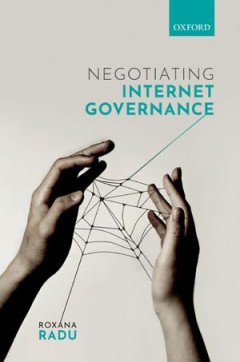
Negotiating Internet Governance
What is at stake for how the Internet continues to evolve is the preservation of its integrity as a single network. In practice, its governance is neither centralised nor unitary; it is piecemeal and fragmented, with authoritative decision-making coming from different sources simultaneously: governments, businesses, international organisations, technical and academic experts, and civil society.…
- Edition
- -
- ISBN/ISSN
- 9780198833079
- Collation
- -
- Series Title
- -
- Call Number
- 340 RAD n
 Computer Science, Information & General Works
Computer Science, Information & General Works  Philosophy & Psychology
Philosophy & Psychology  Religion
Religion  Social Sciences
Social Sciences  Language
Language  Pure Science
Pure Science  Applied Sciences
Applied Sciences  Art & Recreation
Art & Recreation  Literature
Literature  History & Geography
History & Geography